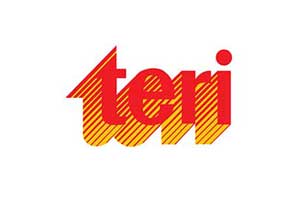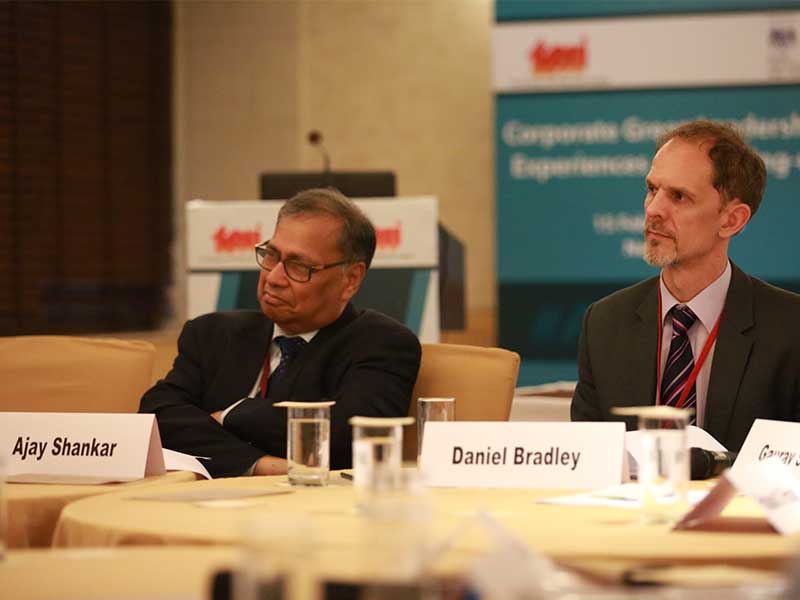


Corporate Green Leadership: Experiences and Scaling-Up
 Positive solutions call for Green Leadership from the corporate sector
Positive solutions call for Green Leadership from the corporate sector
The British High Commission and TERI jointly convened leading Indian corporates in a roundtable on 'Corporate Green Leadership: Experiences and Scaling Up' with a two-fold objective: first, to examine the state of play of corporate climate action in India - drivers, benefits and barriers; and second, to explore solutions to scaling up corporate climate action with a focus on the role of industry-led coalitions/initiatives. UK supports business action on energy and climate change in India and this roundtable was aimed to build on UK's engagement with India's private sector on climate action.
Industry experts, including representatives from 10 companies, came together for a panel discussion that focused on the biggest benefits of engaging with industry-led coalitions on green initiatives and their impact on renewable energy, energy efficiency, and climate-related financial disclosures. The panel explored ways to motivate non-member companies to join the coalition. The panel also discussed the challenges faced by the coalitions in scaling up the initiatives.
Dr Daniel Bradley, First Secretary, Energy and Low Carbon Growth, British High Commission, India, underscored the importance of low carbon agenda and the role of India and the private sector. During the session, he said that the low carbon agenda provides a huge opportunity with an estimated $1 trillion in value and can create as many as 70 million new jobs by 2030. He further highlighted UK’s efforts in transitioning to low carbon phase. He said that Tata Steel is the first Indian company to endorse climate-related financial disclosure initiatives, stressing on the message of making green initiatives transition from a philanthropic initiative to actually making good business sense in long-term financial savings.
In the session, Mr Punit Desai, Infosys, said that his company was able to generate electricity at Rs 3/unit (as against 7–8) through green initiatives and building energy efficient buildings that consume less than 50% of their earlier buildings though green principles. He spoke about how Infosys invested about $50 million on old buildings to increase energy efficiency.
During the discussion, it also came to light that while the Indian cement sector is the most energy efficient in the world, the industry feels that there is scope for a greater push in solar and waste management. Solar rooftop capacity has more than doubled in the past one year and currently stands at 1.7 GW. Mr Sanjay Jain, Dalmia Cements, pointed out the challenges in the business of rooftop solar sector with long term financing. Tata Power’s strategic goal of making renewable energy to contribute about 50% of the total power generated came up for discussion, which is on its way to achieve the target with renewable, contributing more than 35% of the total generation. The aviation industry contributes to about 2% of the carbon generation with domestic contributing about 0.7%. After implementing green initiatives, the Delhi International Airport has become the first carbon neutral airport in Asia-Pacific region and has also set up the first onsite solar power plant in India.
Mr Gaurav Swaroop, Vedanta, said that in industries with legacy issues, such as mining and oil, there is a lack of easily accessible information on the coalitions to join and how to move forward in motivating more companies to join the green initiatives. He also spoke about how creating examples in MSME companies and highlighting them will encourage greater number of companies in coming together for green and sustainable initiatives.